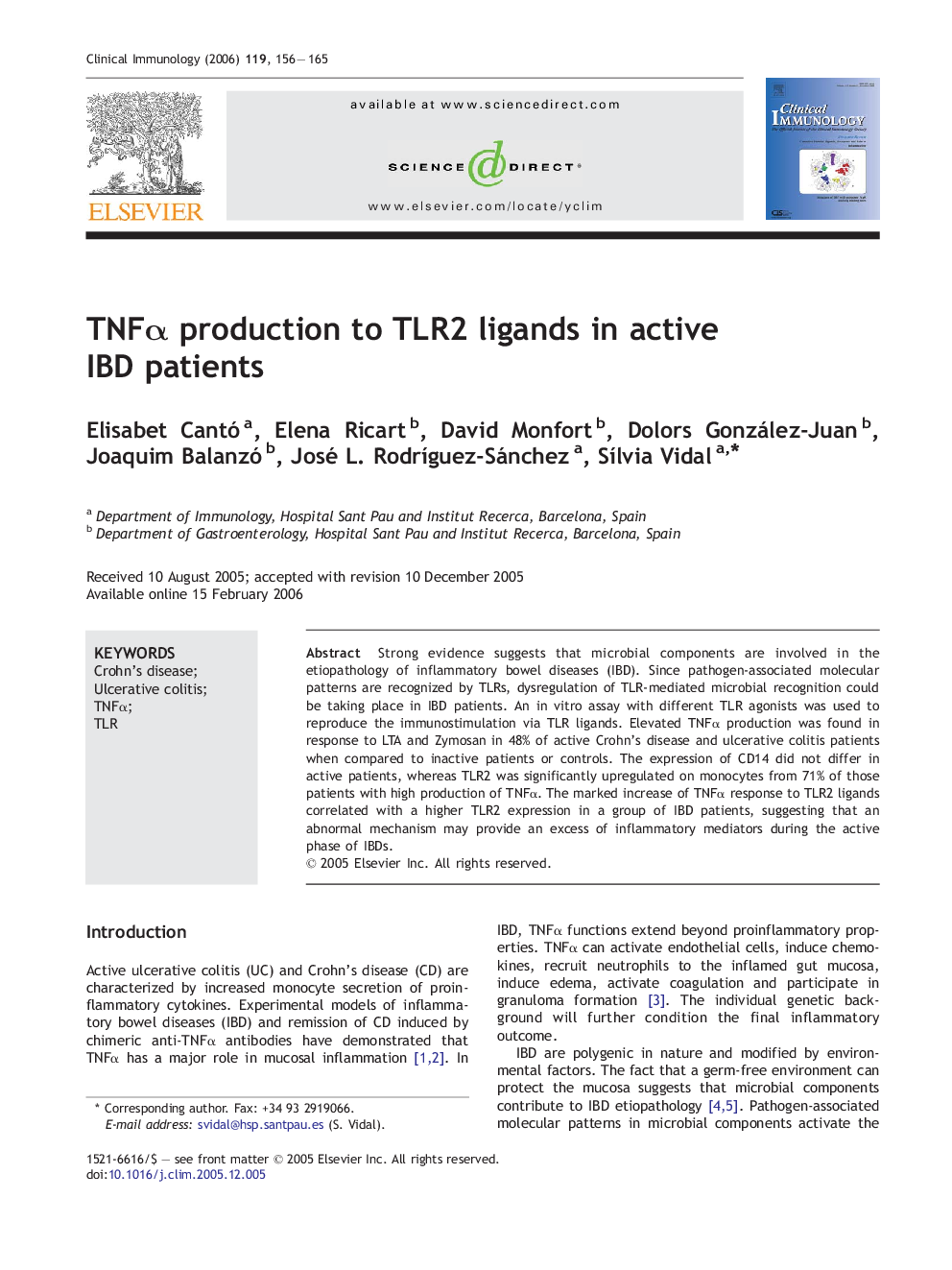| Article ID | Journal | Published Year | Pages | File Type |
|---|---|---|---|---|
| 3258765 | Clinical Immunology | 2006 | 10 Pages |
Strong evidence suggests that microbial components are involved in the etiopathology of inflammatory bowel diseases (IBD). Since pathogen-associated molecular patterns are recognized by TLRs, dysregulation of TLR-mediated microbial recognition could be taking place in IBD patients. An in vitro assay with different TLR agonists was used to reproduce the immunostimulation via TLR ligands. Elevated TNFα production was found in response to LTA and Zymosan in 48% of active Crohn's disease and ulcerative colitis patients when compared to inactive patients or controls. The expression of CD14 did not differ in active patients, whereas TLR2 was significantly upregulated on monocytes from 71% of those patients with high production of TNFα. The marked increase of TNFα response to TLR2 ligands correlated with a higher TLR2 expression in a group of IBD patients, suggesting that an abnormal mechanism may provide an excess of inflammatory mediators during the active phase of IBDs.
